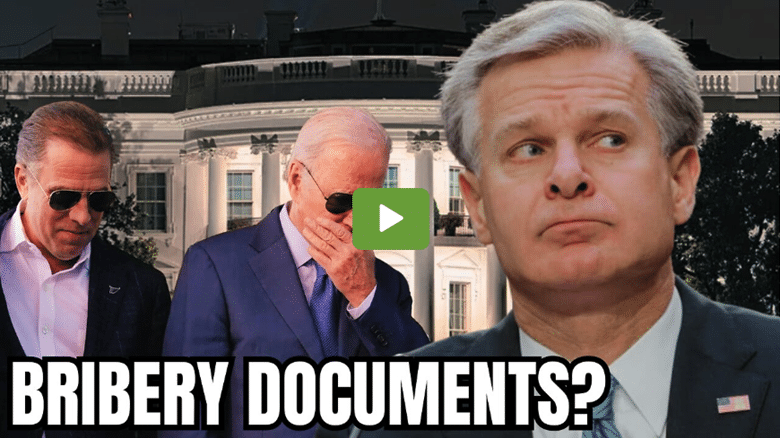June 5, 2023
Permission to republish original opeds and cartoons granted.
The REINS Act might still be the last, best deal Biden gets on regulations if Chevron deference is toppled by the Supreme Court
By Robert Romano
This week, the U.S. House of Representatives will be considering H.R. 277, the Regulations from the Executive in Need of Scrutiny (REINS) Act, legislation by U.S. Rep. Kat Cammack (R-Fla.), that would require Congressional approval for any regulation that either costs the economy at least $100 million, would impact consumer inflation or has or other ‘‘significant adverse effects’’ on the economy.
The legislation would build upon the 1996 Congressional Review Act — passed as a part of the debt ceiling deal with then President Bill Clinton and former House Speaker Newt Gingrich (R-Ga.) — by increasing Congress’ role in regulation even further.
Under current law, Congress can disapprove of a regulation by an executive branch department or agency, but only after it’s been enacted, and only them if the President signs the joint resolution.
As a result, only 20 regulations have ever been overturned by the Congressional Review Act, and yet more than 95,000 rules and regulations have been issued over that time, according to the Competitive Enterprise Institute’s Clyde Wayne Crews and the Congressional Review Service.
Suffice to say, that has hardly restored Congress’ constitutional Article I lawmaking powers, which still effectively rest in departments and agencies hands, largely due to excessive grants of delegation to those executive branch officials to figure out the best way to enforce laws. Thus, House Republicans are returning to the drawing board by offering the REINS Act once again.
Amid this backdrop, the U.S. Supreme Court could be about to strike down the precedent that put the administrative state on a rapid ascent in recent years — the 1984 Chevron v. Natural Resources Defense Council decision. Known as Chevron deference, the 1984 decision established a legal test whereby federal courts would “defer” to the executive branch’s interpretation of a federal statute so long as it is not an “unreasonable” interpretation.
Coupled with the unanimous 1983 Motor Vehicle Manufacturers Association v. State Farm Mutual decision, an agency must also supply a reasoned analysis when rescinding a regulation. Since then, it’s been easier to alter a regulation than it has been to rescind one.
But all of that could be about to change.
The new case, Loper Bright Enterprises v. Raimondo, will be heard this fall or winter and be decided in 2024, which according to the Supreme Court’s docket posed the following questions: “1. Whether, under a proper application of Chevron, the [Magnuson-Stevens Act] MSA implicitly grants [National Marine Fisheries Service] NMFS the power to force domestic vessels to pay the salaries of the monitors they must carry. 2. Whether the Court should overrule Chevron or at least clarify that statutory silence concerning controversial powers expressly but narrowly granted elsewhere in the statute does not constitute an ambiguity requiring deference to the agency.”
Critically, the Court stated it would only consider the second question on whether or not to overrule Chevron: “THE PETITION FOR A WRIT OF CERTIORARI IS GRANTED LIMITED TO QUESTION 2 PRESENTED BY THE PETITION.” Meaning, the first question on whether the NMFS’ compulsion of domestic vessels to pay salaries of federal monitors was “a proper application under Chevron” will not even be considered. Instead, the Court will only be looking at “whether the Court should overrule Chevron…” or else clarify how laws should be interpreted by agencies when Congress is silent.
Depending on the how ruling goes, how the administrative state functions could be severely hampered, and could eventually cause Congress to step in and clarify what the role of departments and agencies are when it comes to issuing regulations. For the past four decades, the 1983 and 1984 decisions by the Supreme Court have had the impact of locking regulations into place, but without them, new Presidents may be able to just come into office and eliminate them.
That is why the REINS Act might actually be the best, last deal that President Joe Biden gets on clarifying what the scope of the regulatory power is — before Chevron deference goes away forever. If it does, that might alter how Congressional Republicans approach the issue in the future, with an eye to going even further to roll back regulations.
Biden for his part may have already passed up the opportunity, as the REINS Act was a part of the House-passed Limit, Save, Grow Act but then was significantly watered down in the final two-year increase of the debt ceiling that ultimately became law. For now, Biden and Congressional Democrats appear to be saying, if the administrative state is going down, they’d rather go down with a fight rather than ceding anything ahead of time.
Robert Romano is the Vice President of Public Policy at Americans for Limited Government Foundation.
Video: Debunking Biden Admin Border Disinformation
To view online: https://rumble.com/v2rpp70-debunking-biden-admin-border-disinformation.html
Video: Wray CAVES! Handing Over FBI Documents ALLEGING Biden BRIBERY to Congress!
To view online: https://rumble.com/v2rns7x-wray-caves-handing-over-fbi-documents-alleging-biden-bribery-to-congress.html
Video: EXPOSING the DC Smoke & Mirrors Show: ‘Repealing’ Biden’s Student Debt Forgiveness
To view online: https://rumble.com/v2rptve-exposing-the-dc-smoke-and-mirrors-show-repealing-bidens-student-debt-forgiv.html




